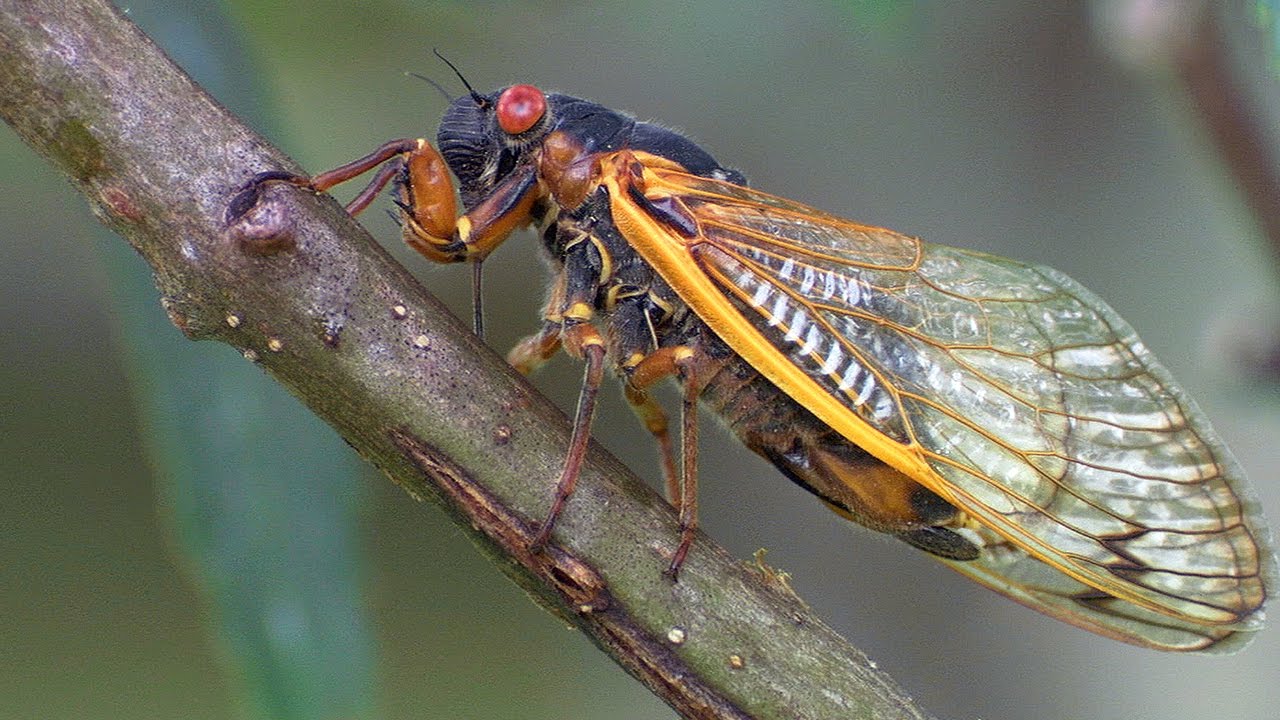Cicadas: Singing Insects of Summer's Symphony
Cicadas, with their mesmerizing chorus and mysterious underground existence, are a quintessential part of summer. Here's what makes these insects truly remarkable:
Anatomy and Characteristics:
Cicadas are known for their large, transparent wings, bulging eyes, and distinctive sound-producing organs called tymbals. They come in various species, each with unique patterns and colors. Despite their striking appearance, cicadas spend most of their lives underground as nymphs.
Life Cycle and Behavior:
Cicadas have one of the longest life cycles of any insect, with some species remaining underground for as long as 17 years before emerging as adults. Once above ground, they shed their nymphal exoskeletons and spend a few weeks mating and laying eggs before dying.
Mating Calls and Communication:
Male cicadas produce loud, buzzing calls to attract females, with each species having its distinct mating song. These calls serve not only to attract mates but also to establish territory and deter rival males. The synchronized chorus of cicadas creates a symphony that signals the peak of summer.
Ecological Importance:
Cicadas play a vital role in forest ecosystems as herbivores and prey for various predators. Their emergence en masse can provide a significant food source for birds, mammals, and other insects, contributing to the richness and diversity of the ecosystem.
Cultural Significance:
Throughout history, cicadas have inspired awe and fascination in cultures around the world. In some cultures, they symbolize rebirth, renewal, and transformation, while in others, they are associated with themes of endurance and resilience.
Cicadas may spend most of their lives hidden from view, but their presence is felt in the symphony of summer. By understanding and appreciating these fascinating insects, we can gain a deeper connection to the rhythms of nature and the intricate web of life.

